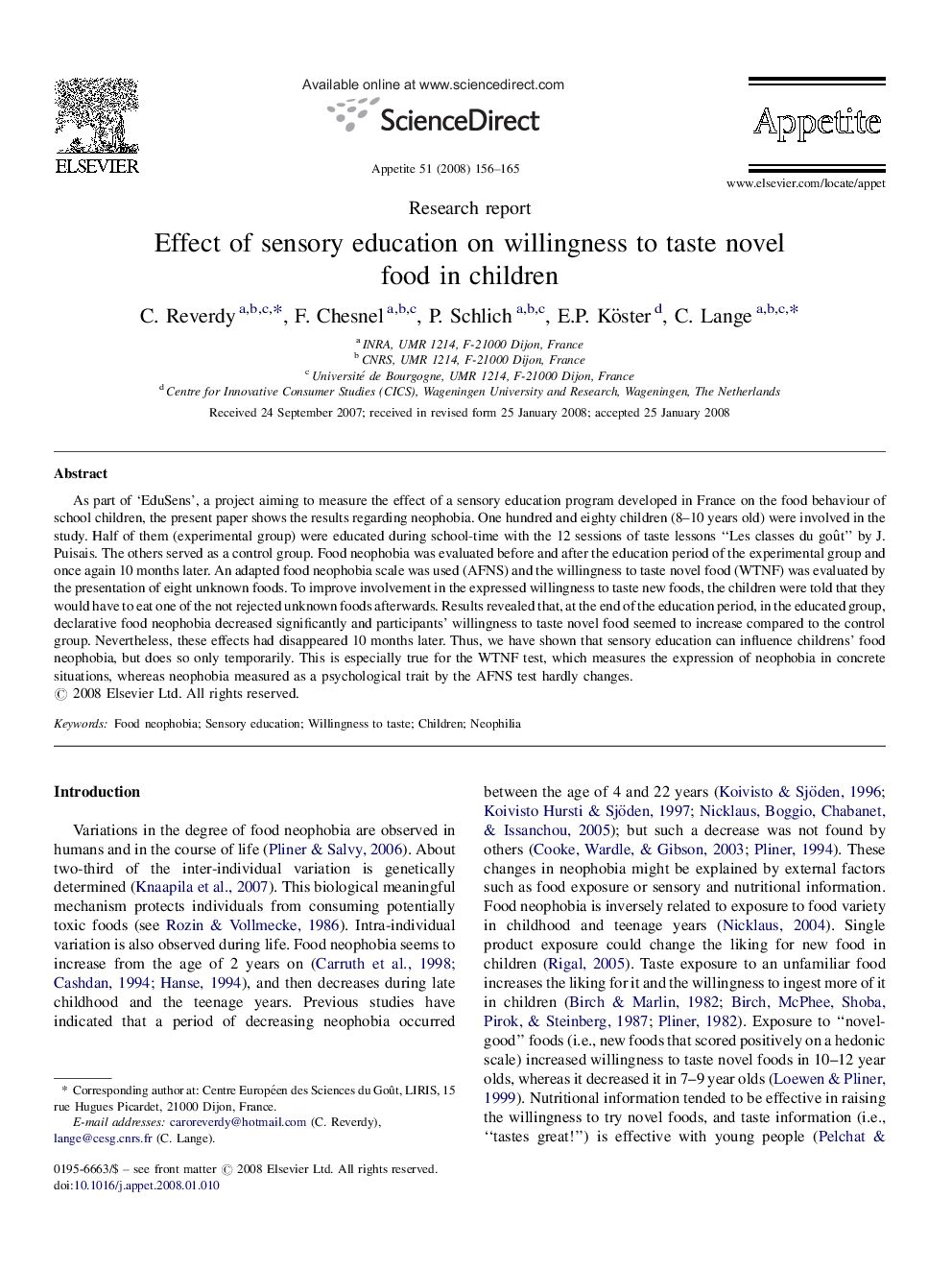| Article ID | Journal | Published Year | Pages | File Type |
|---|---|---|---|---|
| 941530 | Appetite | 2008 | 10 Pages |
As part of ‘EduSens’, a project aiming to measure the effect of a sensory education program developed in France on the food behaviour of school children, the present paper shows the results regarding neophobia. One hundred and eighty children (8–10 years old) were involved in the study. Half of them (experimental group) were educated during school-time with the 12 sessions of taste lessons “Les classes du goût” by J. Puisais. The others served as a control group. Food neophobia was evaluated before and after the education period of the experimental group and once again 10 months later. An adapted food neophobia scale was used (AFNS) and the willingness to taste novel food (WTNF) was evaluated by the presentation of eight unknown foods. To improve involvement in the expressed willingness to taste new foods, the children were told that they would have to eat one of the not rejected unknown foods afterwards. Results revealed that, at the end of the education period, in the educated group, declarative food neophobia decreased significantly and participants’ willingness to taste novel food seemed to increase compared to the control group. Nevertheless, these effects had disappeared 10 months later. Thus, we have shown that sensory education can influence childrens’ food neophobia, but does so only temporarily. This is especially true for the WTNF test, which measures the expression of neophobia in concrete situations, whereas neophobia measured as a psychological trait by the AFNS test hardly changes.
